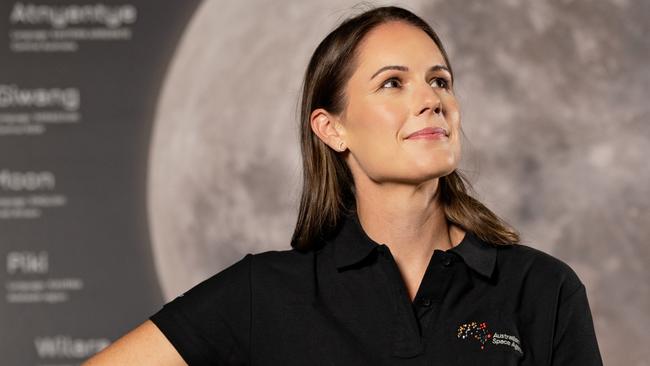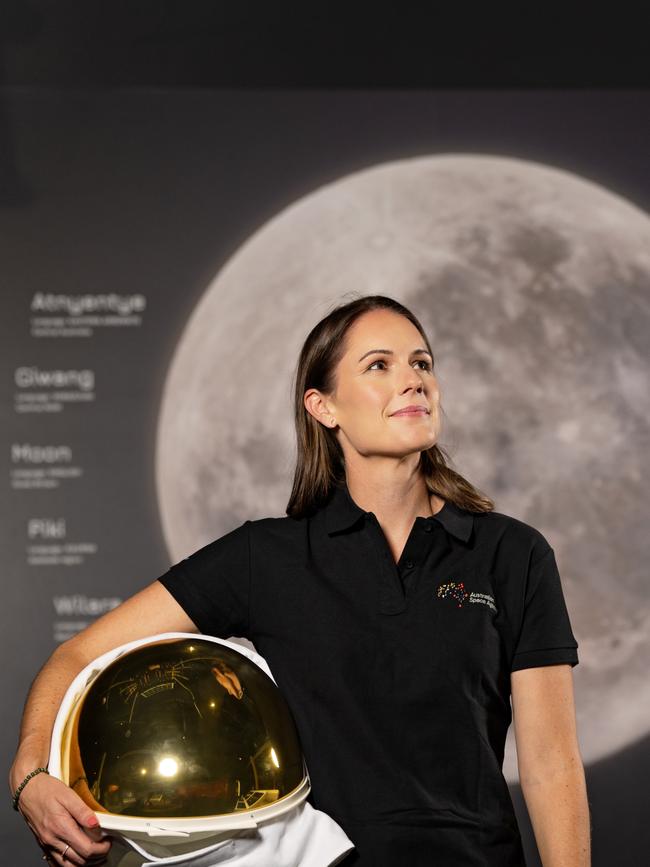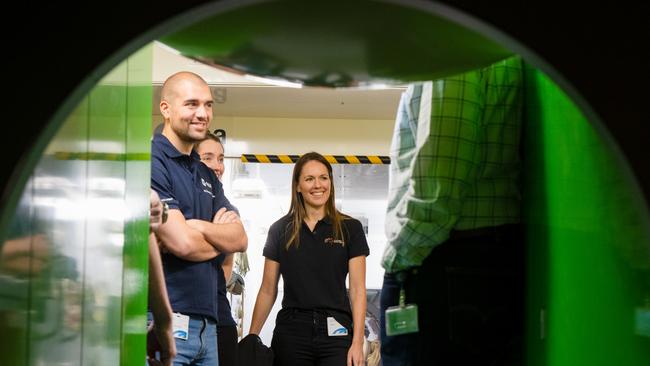Australian of the Year nominee: Katherine Bennell-Pegg
Australian of the Year nominee: Katherine Bennell-Pegg became the first Australian to train as an astronaut under the Australian flag earlier this year.

A career dream from the age of eight is now a reality after Katherine Bennell-Pegg became the first to train as an astronaut under the Australian flag earlier this year.
“During the selection process it was very clear we understood that this isn’t a job about glory, it’s a job about being part of a big team of scientists and engineers, advancing science, advancing the infrastructure in space to help people on Earth,” Ms Bennell-Pegg told The Australian in November.
Ms Bennell-Pegg was one of 23,000 people who applied for Astronaut Basic Training, and secured her spot as a dual Australian-British citizen, before the Europeans agreed to train her under the Australian flag.
“We’ve had Andy Thomas and Paul Power go to space before representing the US. We’ve had Phillip Chapman and Meganne Christian selected but not yet flown, also representing other nations,” she said.
“And I think that having astronauts with Australian flags on their shoulders does a lot for the inspiration back home and unlocks opportunities for industry and science.”
Her extraordinary achievement in the space industry is why Ms Bennell-Pegg is a nominee for The Australian’s Australian of the Year, recognising those has made a difference, triumphed, helped others or led by example.
As she prepares to take to the stars, Ms Bennell-Pegg said a modern astronaut is a scientist, test subject, engineer, ambassador, diplomat, teacher, role model, pilot and machinery operator.
“Human space flight at first can appear niche or luxurious, but actually it touches on every kind of science and technology you can imagine,” Ms Bennell-Pegg said.
“Because in space you’re working in labs where you can do any kind of science, where new technologies can be directly applied to earth.
“There’s a start-up that’s printing artificial retinas up there to cure one of the leading causes of blindness.

“There’s lots for Australia to benefit from should we step forward. So I hope to help support that,” she said.
She said Australia has an opportunity to be more involved in human space flight in the future.
“What I really hope for is that my training and whatever comes next helps unlock the path for more Australians to become involved in human space flight in all areas, such as being in the operation control rooms on the ground, setting up payloads, robots or new space station infrastructure, and maybe one day, when the time is right, more Australian astronauts … because of what that means for inspiring people back home,” she says.

The five other members of her cohort will undertake a six-month mission to the space station by 2030, but Ms Bennell-Pegg’s attendance in space will be a matter for Australia.
“Certainly there’s a lot of interest from my international partners to engage Australia … in exploration,” she said.
“I would honestly love a lunar mission. I mean, that’s the dream. The world is going back to the moon in the 2020s and 2030s … and Australia has so much to contribute to that.”





To join the conversation, please log in. Don't have an account? Register
Join the conversation, you are commenting as Logout